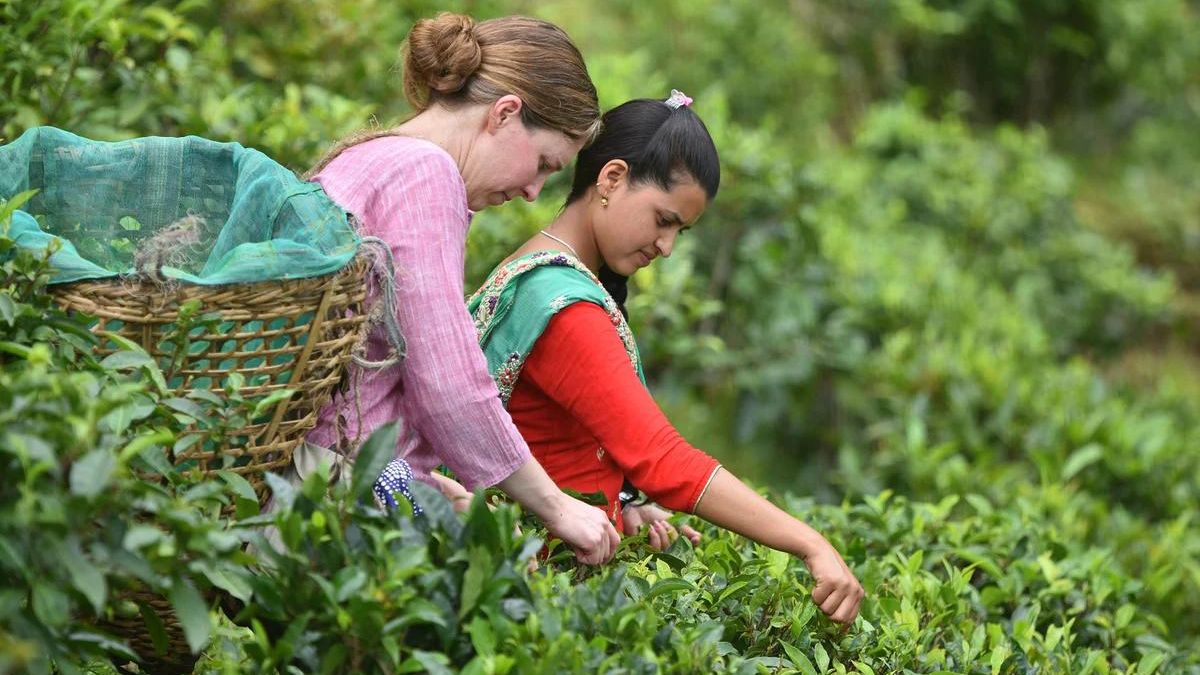Nepal, renowned for its breathtaking landscapes and Himalayan peaks, is also home to lush tea gardens that produce some of the finest teas in the world. From the misty hills of Ilam to the serene valleys of Dhankuta, Nepal's tea plantations offer a captivating journey from plantation to cup, showcasing a rich history and dedication to producing exceptional teas.
**1. The Origins:**
Tea cultivation in Nepal dates back to the mid-19th century when the British introduced the Camellia sinensis plant to the region. Over the years, the country's tea industry has flourished, and today, it is a significant contributor to the economy. The unique combination of high-altitude regions, fertile soil, and ideal weather conditions have led to the cultivation of exquisite teas that are loved by connoisseurs worldwide.
**2. Plantation Visits:**
A visit to Nepal's tea gardens is an experience like no other. As you stroll through the lush green fields, you'll witness skilled tea pluckers delicately handpicking the tender tea leaves. Many tea estates welcome visitors, allowing them to get a closer look at the tea production process. From learning about different tea varieties to witnessing the traditional method of tea plucking, these visits offer a glimpse into the labor-intensive yet fascinating world of tea cultivation.
**3. The Art of Processing:**
Once the tea leaves are plucked, they undergo an intricate processing method that heavily influences the tea's flavor and aroma. The leaves are withered, rolled, oxidized, and fired, with each step meticulously carried out by experienced artisans. In Nepal, both orthodox and CTC (Crush, Tear, Curl) methods are employed, leading to an array of teas, including black, green, white, and oolong teas, each with its own unique characteristics.
**4. Ethical and Sustainable Practices:**
Nepal's tea industry takes pride in its ethical and sustainable practices. Many tea estates in the country are certified organic, ensuring that the teas are grown without harmful pesticides or chemicals. Additionally, fair trade practices are prevalent, benefiting the tea workers and their communities. Choosing Nepali tea not only promises a delightful cup but also supports responsible tea farming.
**5. A Taste to Savor:**
The proof of Nepal's tea excellence lies in the taste. When you finally savor a cup of Nepal's finest tea, you'll be rewarded with a distinct flavor profile that embodies the region's terroir. From the floral notes of first-flush Darjeeling-style teas to the robust and malty character of black teas from Ilam, every sip is a journey through the picturesque tea gardens of Nepal.
**6. Tea Tourism and Cultural Immersion:**
Tea tourism is a burgeoning trend in Nepal, attracting tea enthusiasts and nature lovers alike. Besides exploring the tea gardens, visitors can immerse themselves in the local culture, stay at charming tea estates turned into boutique hotels, and participate in cultural events and traditional tea ceremonies.
In conclusion, Nepal's tea gardens offer a captivating and immersive experience, allowing visitors to witness the journey of tea from plantation to cup. With a commitment to ethical practices and a dedication to producing top-quality teas, Nepal's tea industry has carved a niche for itself in the global tea market. So, if you ever find yourself yearning for a memorable and flavorsome adventure, be sure to explore Nepal's verdant tea gardens for an unforgettable experience.



No comments:
Post a Comment
Thank u very much for your valueable comment.